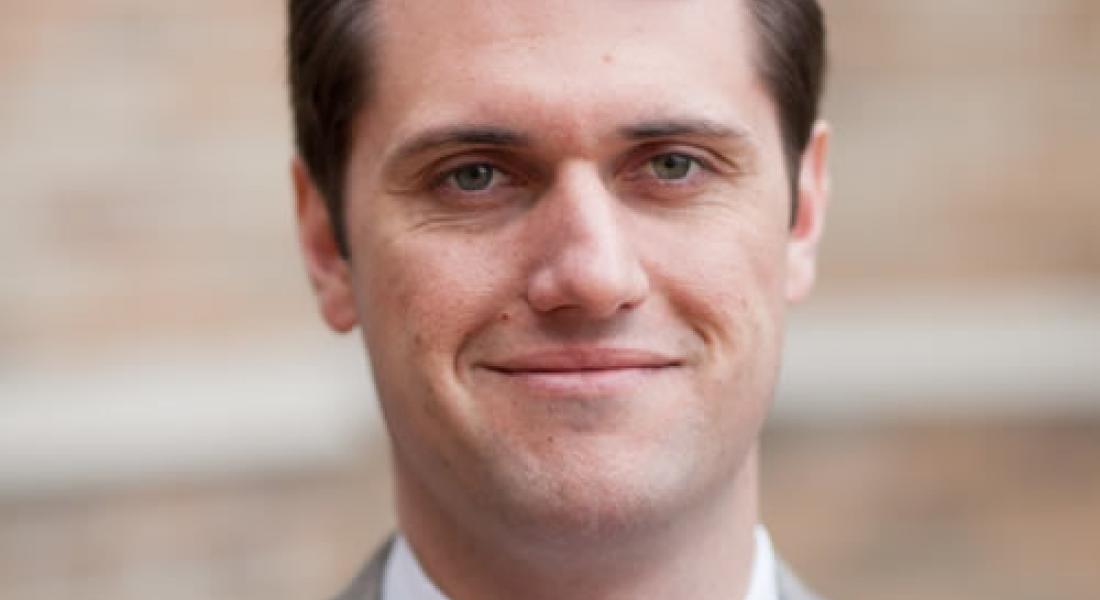
Kellogg Doctoral Student Affiliate Craig Iffland has been named a 2017 recipient of the Charlotte W. Newcombe Doctoral Dissertation Fellowship from the Woodrow Wilson National Fellowship Foundation.
He is one of only 21 scholars from across the country to receive the award, the nation’s largest and most prestigious for PhD candidates in the humanities and social sciences who are addressing questions of ethical and religious values. The fellowship will provide Iffland with $25,000 over 12 months to support the final year of work on his dissertation, “Following and Not-Following the Divine Law.”
“My research focuses on the ways in which religious beliefs can positively influence the development and protection of legal regimes protecting human rights,” says Iffland, a fifth-year PhD candidate in moral theology.
“While the dissertation concerns a topic that is intrinsically theological, my project is interdisciplinary in scope, bringing theological perspectives on the divine law into conversation with contemporary philosophers of law about the nature of law and legal systems,” he explains.
“Ultimately, I want to provide a theological defense of the obligatory character of contemporary legal and customary norms that protect individuals from unjust harm. If I am correct, some contemporary legal norms—like those contained in the law of armed conflict—can be credibly counted as forming part of the divine law.”
The direction of Iffland’s studies were influenced in his first year at Notre Dame by the opportunity to work as a research assistant for Faculty Fellow Rev. Robert Pelton, CSC, as he was completing the production of his documentary, Monseñor: The Last Journey of Óscar Romero.
“It was Romero's impassioned appeal to the divine law in the face of tyranny that inspired me to think more deeply about the role of the divine law in the defense of human rights,” Iffland says.
In 2015, he won a USAID Research and Innovation Fellowship to conduct research on “The Applicability of International Humanitarian Law in Contemporary Armed Conflict” in Johannesburg, South Africa. He is also the recipient of Kellogg conference travel grants that have permitted him to present portions of his dissertation in Santiago, Chile, and Rome, Italy.
Funded by the Charlotte W. Newcombe Foundation, the Newcombe Fellowship was created in 1981 and has supported just over 1,200 doctoral candidates, most of them now noted faculty and thought leaders in their fields. The fellowships are designed to encourage original and significant study of ethical or religious values in all fields of the humanities and social sciences.
The Kellogg Institute for International Studies, part of the University of Notre Dame’s new Keough School of Global Affairs, is an interdisciplinary community of scholars and students from across the University and around the world that promotes research, provides educational opportunities, and builds linkages related to two topics critical to our world—democracy and human development.
First posted at http://woodrow.org





